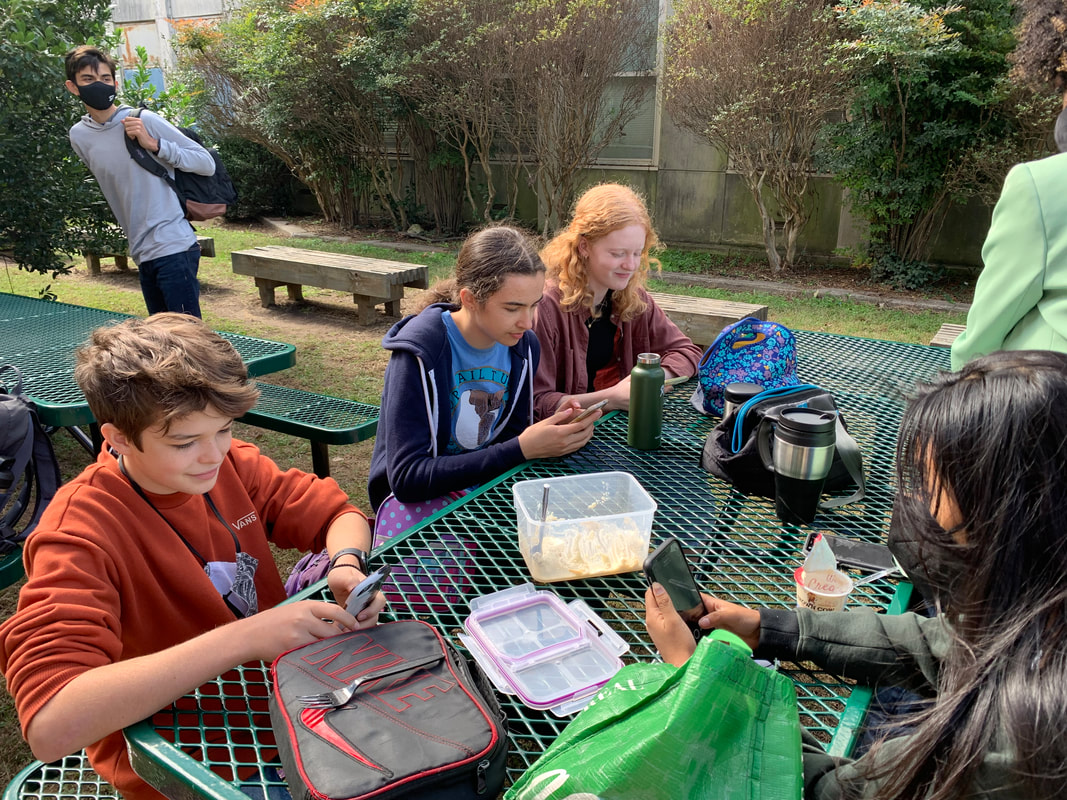An addictive depressant: mitigating the effects of social media on mental health.
BY DELPHINE LIU
|
Decreased self esteem, poor body image, and increased anxiety/depression, combined with enhanced networking, education, and freedom of expression, make up only a few of the many aspects of social media. Through continued use, consumers experience a Yin and Yang of feelings and impacts.
Social media platforms are considered a fun and entertaining way for people of all ages to connect. While being an important tool for many, social media has proved damaging to mental health, particularly for adolescents. So then why do 90% of teenagers have some form of social media? "During COVID, social media was helpful for people who were feeling isolated, alone, or just needed to have some type of connection to the outside world. " Genesis Belle, a DSA counselor, stated. Social media has been a great tool during the pandemic. With platforms allowing users to connect from their homes, engage with others and keep up with social, political, environmental, and economic happenings. For individuals, the sites helped them feel less alone. "[Social media] allows you to connect with lots of friends, and meet all these new people and experience different cultures that you wouldn't experience otherwise." Isabel Rich, a DSA junior with a social media account, noted. Rich mentioned that prior to COVID, she took several social media breaks. But, after the global shut down, platforms like Instagram filled the void created by a lack of social interactions. In response to a question about the negative effects, Ms. Belle, who works with students on a regular basis, warned of social media detriment. "I find that too much reliance on social media can hurt in-person interactions because you are out of touch, so to speak, with how to even talk to each other…In-person communications allow you to connect on a healthier and more authentic level." Ms. Belle reflected. Ms. Belle spoke about how comparing posts and receiving likes can influence people's sense of self-worth. Other students agreed, and spoke about the negatives of being active on social media. "It's toxic because you start comparing yourself to [others], and you feel like you are falling behind." Erika Hernandez, a junior at DSA, remarked. Hernandez declared that she often spends many hours a day scrolling through social media, and that the endless activity can affect her mood. |
PHOTO CREDIT: LAYLA NIBLOCK
Students sit at lunch. Periodically checking their phones or social media, they enjoy keeping in touch with peers, friends, and families. "You go on it and you see tragic things about the world. You see people living their best lives. You see unrealistic body expectations (especially for women), or you see a lot of hate." Rich expressed. A student who doesn't have social media spoke on why she believes that despite the negatives, people continue to use these apps. "The instant gratification feels more powerful to them in the moment than the after." Kate Blizzard, a senior, commented. Not having social media doesn't seem to bother Blizzard, and she says she doesn't feel absent from anything by not having it. Rich likes to keep in mind that moderation is important when using social platforms. "It's not always real. You can forget that people are filtering what is going out there. You see what other people want you to see, that's not their whole life." Rich adds. Ms. Belle shares her advice for those who feel burdened by addiction or pressure from social media. "Social media offers an escape, and presents illusions for how others are living. But your grass is greener where you water it, so make sure you are pouring into yourself positivity and motivation to achieve whatever goals you have set for yourself!" Ms. Belle confirmed. |

